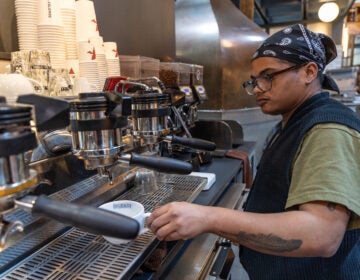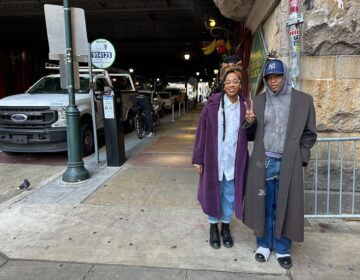Meet the Philly-area winemaker who isn’t afraid of a little glitter in her glass
The founder of a Black-owned micro-winery in Hatboro looks to triple her sales in 2024.
Listen 1:20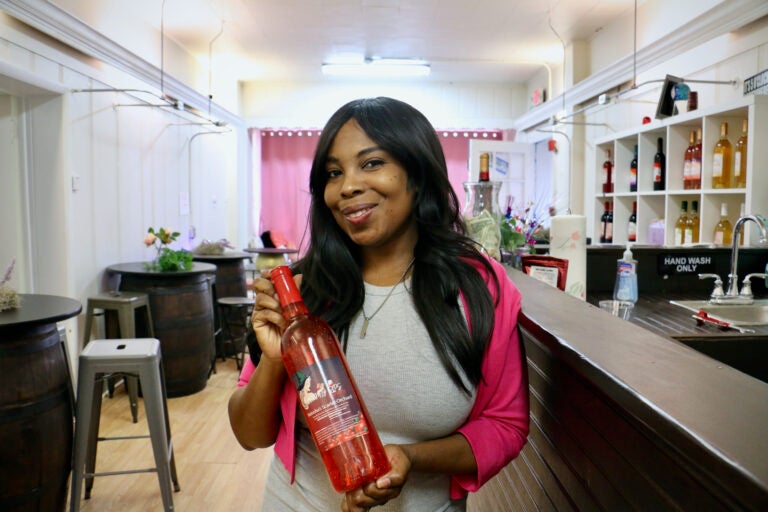
Shakia Williams, in her tasting room in Hatboro, Pa., holds a bottle of her apple wine, Natasha's Scarlet Orchard. (Emma Lee/WHYY)
From Philly and the Pa. suburbs to South Jersey and Delaware, what would you like WHYY News to cover? Let us know!
It’s been about 15 months since Shakia Williams poured the first glass of wine inside her micro-winery, Cyrenity Sips.
Williams opened a brick-and-mortar shop on Main Street in Hatboro, a Montgomery County town just north of Willow Grove, in September 2022. She moved back to the region after living in Virginia Beach for about a decade.
Hers is also one of the few wineries across the nation owned and operated by a Black woman.
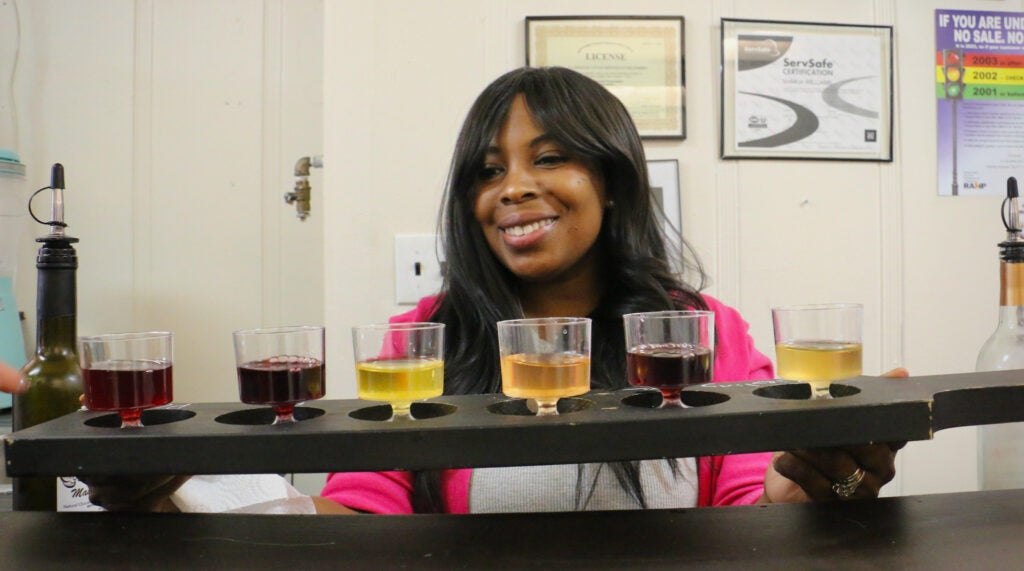
Williams, a Southwest Philly native, has support as a family-owned business from her daughter, Cyan, who is 21 years old and training to become a sommelier, or a wine expert.
“She’s basically here all the time,” Williams laughed. “I think she’s already taken over. But yeah, I definitely foresee her just taking the lead [someday] and moving us forward.”
Williams poured out a flight of wines in her shop in September to showcase her winemaking but also to celebrate a microgrant of $5,000 and business support from the Urban League in Philadelphia and Elevate Together.
Hers is 1 of 20 small businesses awarded $100,000 at a Northeast Philly Office Max in September.
It’s the third year in a row that Elevate Together, which is funded by the Office Depot Foundation, has donated the money to the Urban League and the Hispanic Chamber of Commerce.
Grantees ranged from beauty supply makers to baby product manufacturers. Each business owner was matched with a U.S. Small Business Administration mentor to improve their company strategy.

While Williams is a big fan of “noble grapes,” which produce staple wines like merlot and chardonnays, from her time working for wineries, she noticed that her customers buy more fruit wines made from blueberries or peaches.
“That’s our sugar plum fairy wine, it also has edible glitter,” Williams said about the deep purple liquid that shimmered and swirled in a tiny glass. “I didn’t realize how much of a sweeter palate people had in the Northeast. So I said, you know what? I will incorporate fruit ones, especially around the holidays.”
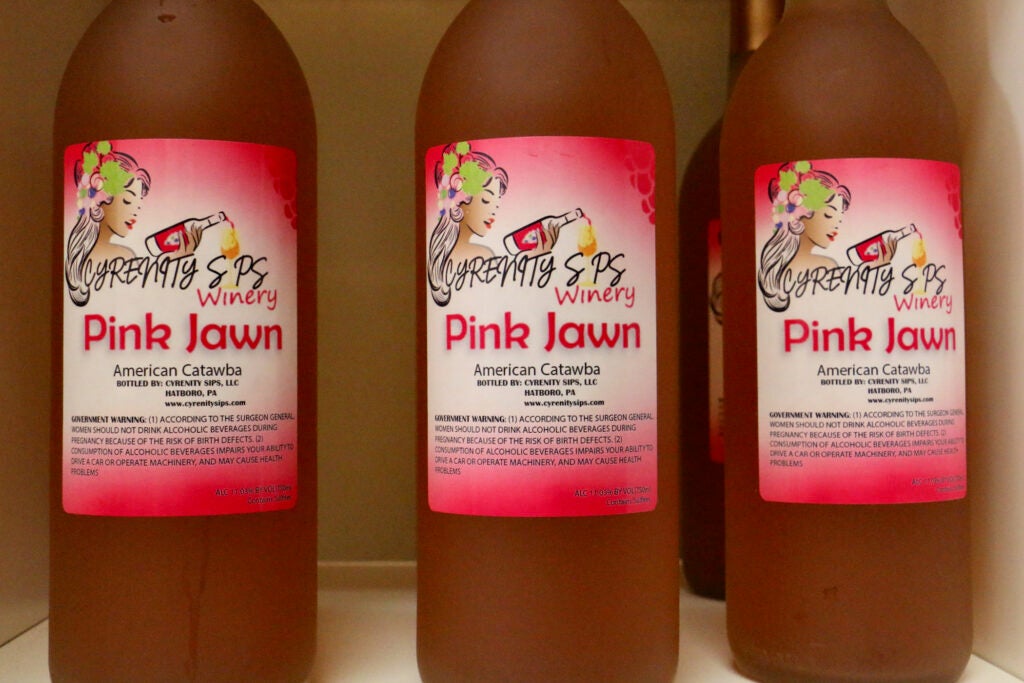
Over the past year, she’s weathered some turbulence, such as higher prices for her raw ingredients. She expects to use the extra cash to offset an uptick in the cost of doing business like operational fees and equipment.
“Wine juice can be expensive,” she said after settling into her purple lounge area couch lit by the glow of a bubble gum pink neon brand signage, a play on words inspired by her daughter. “As with everything else, inflation, [the cost] of everything is going up.”
The micro-winery in a small town was not her first idea. She initially tried to find a storefront in Philadelphia proper, she says, but was unable to find the proper setup.
“We do the whole fermentation process — from first fermentation, second fermentation, clearing, then we do the bottle and label and cork all here on the premises,” she said.
Instead, she “fell in love with a window” that offers more pedestrian traffic with regular events on the town’s main street, like cruise nights, where vintage cars roll down the block.
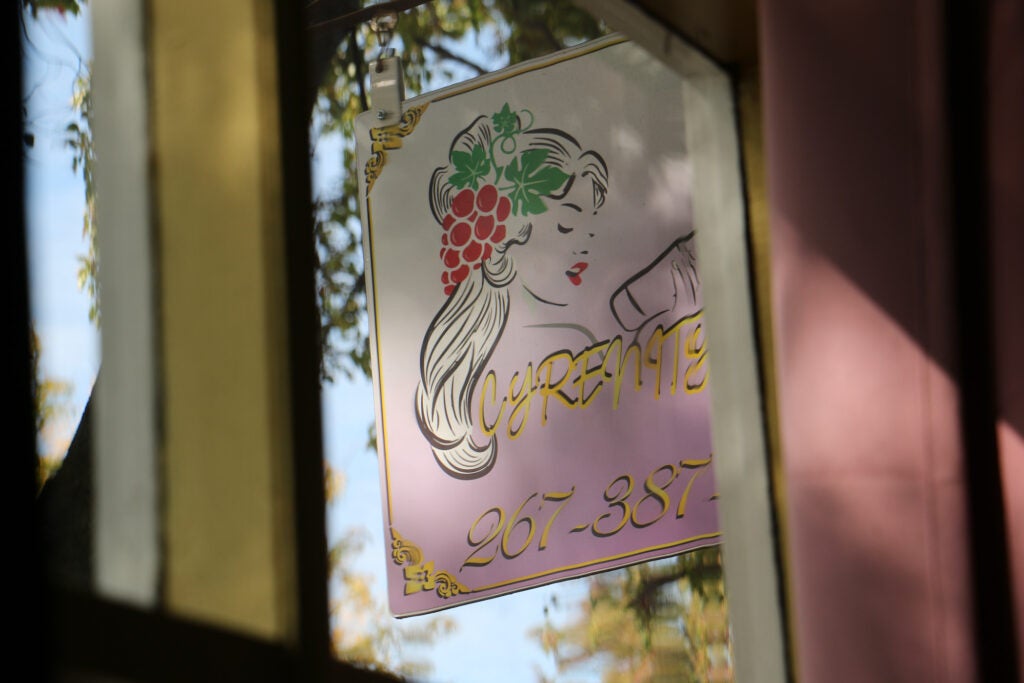
Williams sources grapes from around the world, from South Africa to Chile, but also in the U.S., such as California and New York.
The winemaking process depends on the type of wine, she said.
“For red wines, I extend the process from eight months to a year,” she said. “But for fruit wine you can do it in four months. The wine will tell you when it’s done.”
Williams said she’d love to own a vineyard someday, but that feels like a stretch right now.
“It’s so much work. And the machinery is expensive,” she said. “But our goal next year is to triple our sales.”
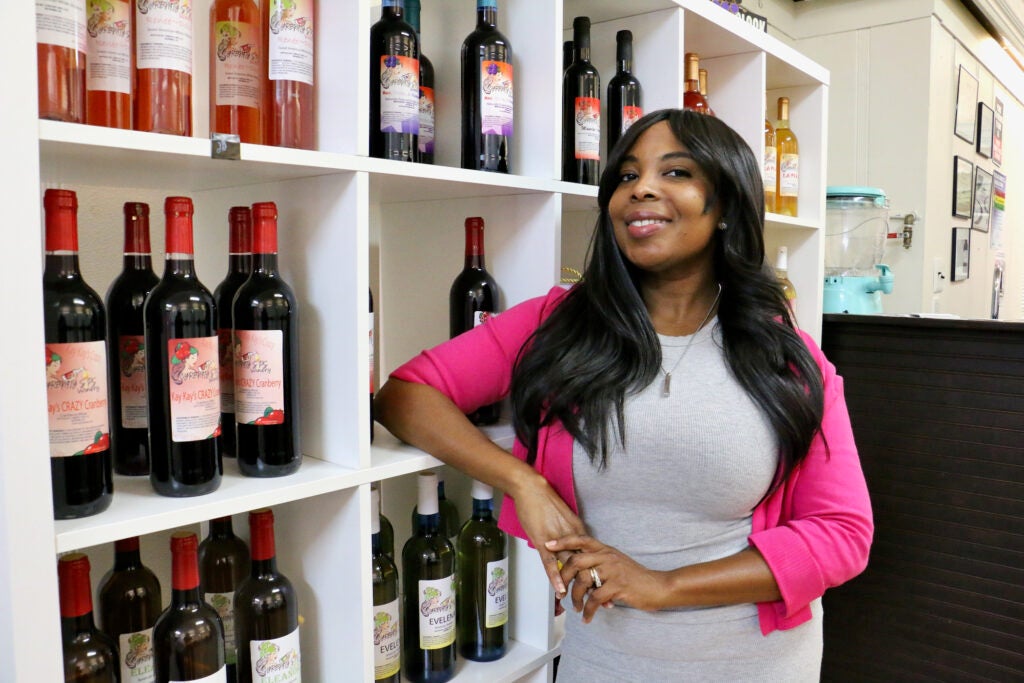
One way she plans to do that is offer the winery as an event space for parties and expand her reach at restaurants.
“We want to take the pretentiousness out of wine so everyone can enjoy it,” she said.
Online shoppers likely won’t get any boozy sugar plum dreams in the mailbox before mid-January.
Online shopping cart abandonment can be an issue due to the cost for shipping fragile boxes, which can be upwards of $20, Williams said.
The shop doesn’t ship to Delaware because it’s against the law. Nor does it ship to New Jersey, which requires extra cost for the business.
Like many small business owners, Williams isn’t doing any more last minute, on-demand shipping from her shop until after Jan. 5, 2024.
Instead, she’s interested in cherishing “precious moments with family.”

Get daily updates from WHYY News!
WHYY is your source for fact-based, in-depth journalism and information. As a nonprofit organization, we rely on financial support from readers like you. Please give today.


